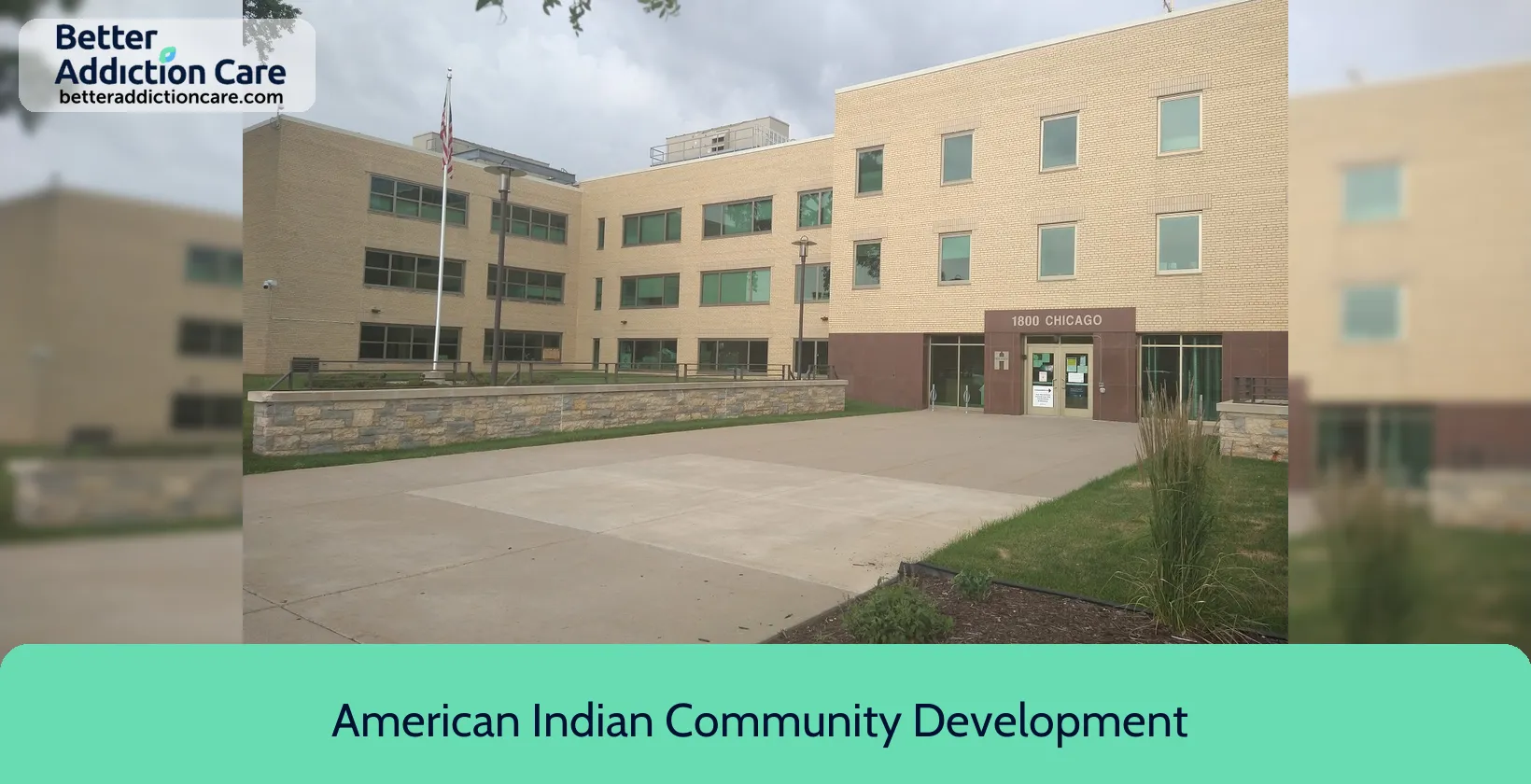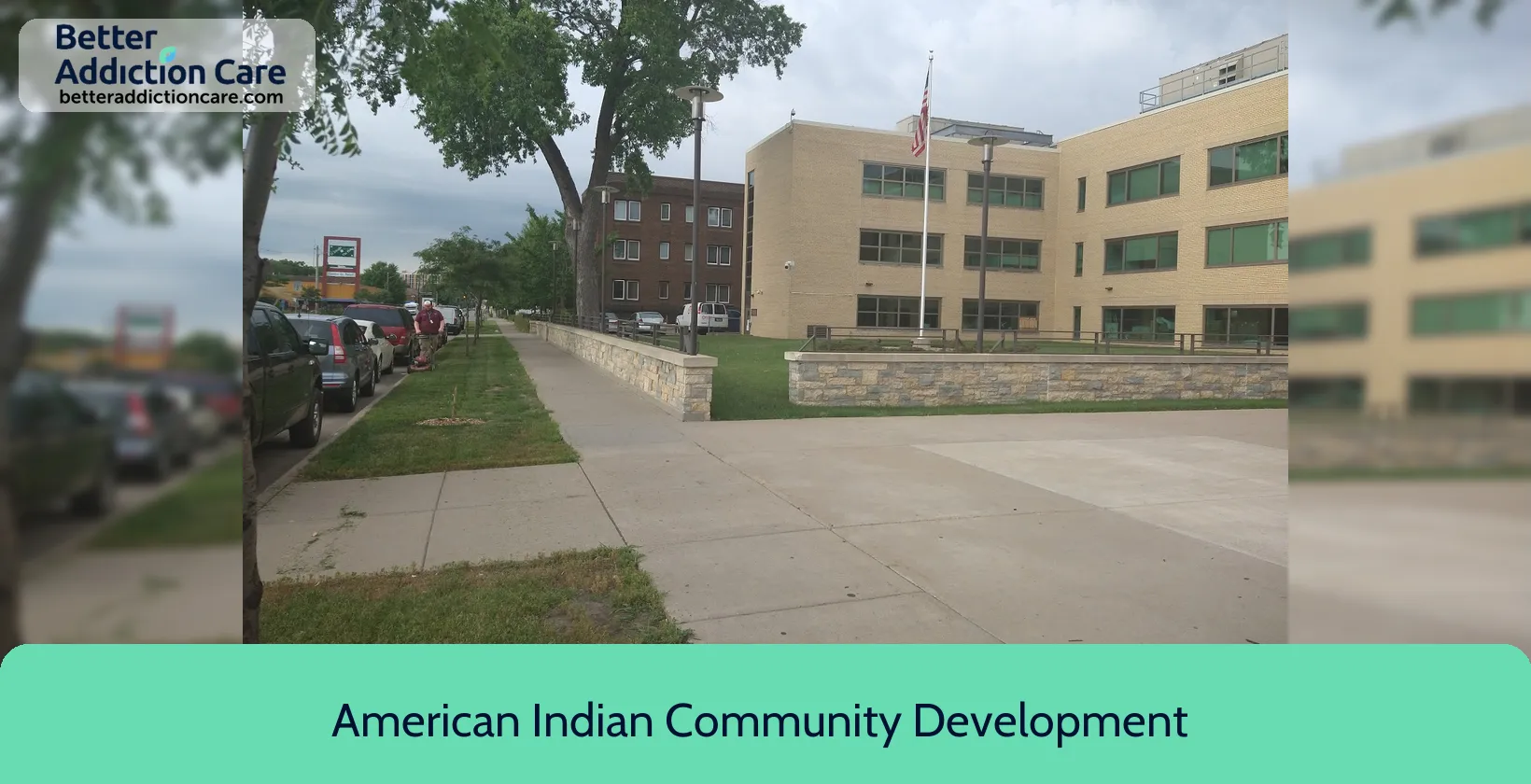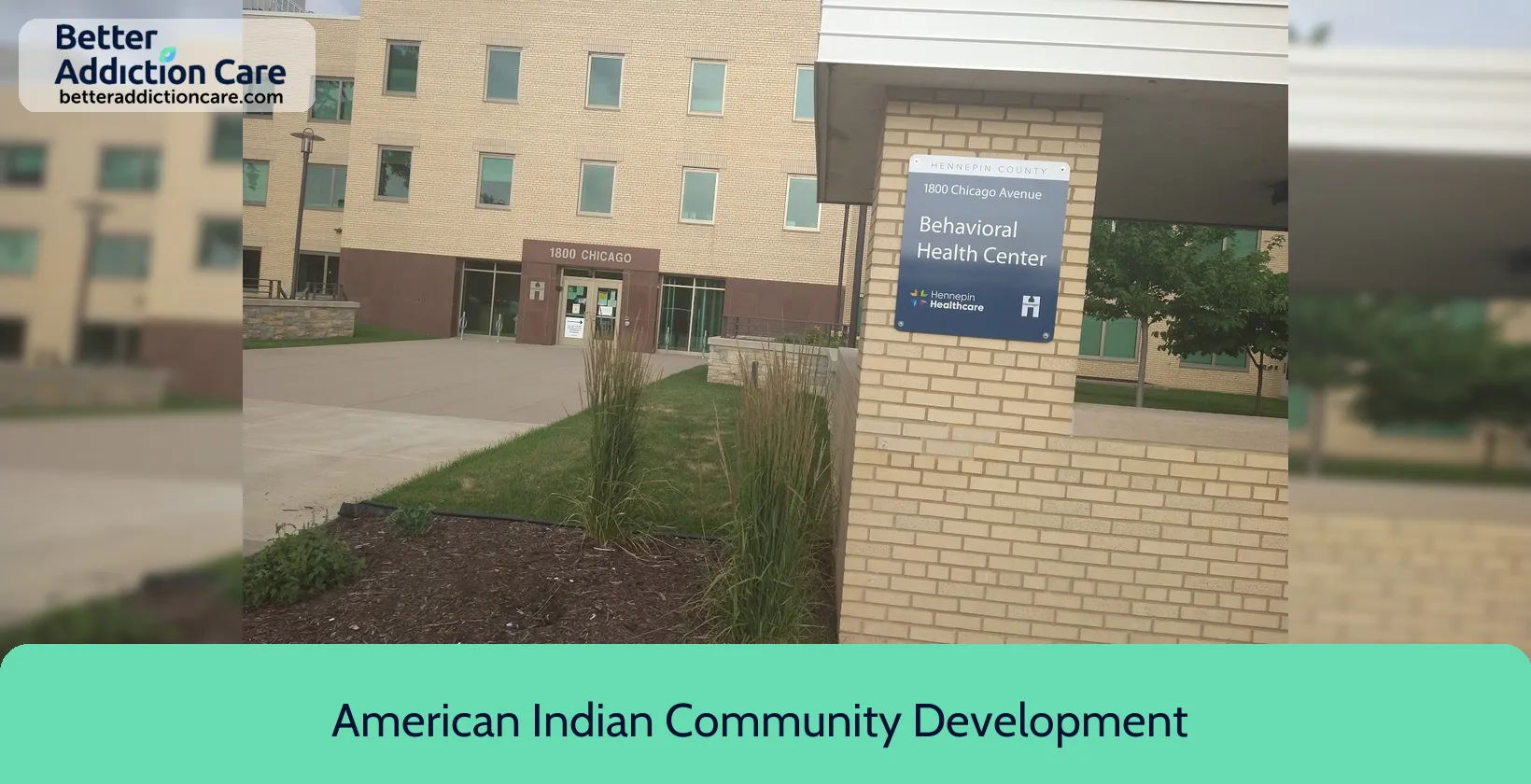American Indian Community Development - Withdrawal Management Center
Overview
American Indian Community Development - Withdrawal Management Center is a substance abuse treatment center for people seeking treatment near Hennepin County. As part of their treatment modalities for recovery, American Indian Community Development - Withdrawal Management Center provides cognitive behavioral therapy, substance use disorder counseling, and group counseling during treatment. American Indian Community Development - Withdrawal Management Center is located in Minneapolis, Minnesota, accepting medicaid for treatment.
American Indian Community Development - Withdrawal Management Center at a Glance
Payment Options
- Medicaid
- Medicare
- State-financed health insurance plan other than Medicaid
- Private health insurance
- Federal, or any government funding for substance use treatment programs
Assessments
- Screening for tobacco use
- Comprehensive substance use assessment
- Screening for mental disorders
- Screening for substance use
Age Groups
- Seniors or older adults
- Young adults
- Adults
- Seniors
Ancillary Services
- Case management service
Highlights About American Indian Community Development - Withdrawal Management Center
7.13/10
With an overall rating of 7.13/10, this facility has following balanced range of services. Alcohol Rehabilitation: 8.00/10, Drug Rehab and Detox: 7.54/10, Insurance and Payments: 6.00/10, Treatment Options: 6.97/10.-
Alcohol Rehabilitation 8.00
-
Drug Rehab and Detox 7.54
-
Treatment Options 6.97
-
Insurance and Payments 6.00
Accreditations
State department of health:

Government agencies issue State Licenses, granting rehabilitation organizations permission to operate their businesses legally within specific geographic regions. The licenses needed for legal operation are typically determined by the type of rehabilitation program offered by a facility and its physical location.
Treatment At American Indian Community Development - Withdrawal Management Center
Treatment Conditions
- Substance use treatment
Care Levels
- Hospital inpatient treatment
- Residential detoxification
- Aftercare
Treatment Modalities
- Cognitive behavioral therapy
- Substance use disorder counseling
- Group counseling
- 12-step facilitation
- Intervention Services
Ancillary Services
Additional Services
- Pharmacotherapies administered during treatment
- Mentoring/peer support
- Breathalyzer or blood alcohol testing
Special Programs
- Clients with co-occurring mental and substance use disorders
- Veterans
- Active duty military
- Members of military families
- Criminal justice (other than DUI/DWI)/Forensic clients
Contact Information
Read our Most Recent Article About Drug Addiction
DISCLAIMER: The facility name, logo and brand are the property and registered trademarks of American Indian Community Development - Withdrawal Management Center, and are being used for identification and informational purposes only. Use of these names, logos and brands shall not imply endorsement. BetterAddictionCare.com is not affiliated with or sponsored by American Indian Community Development - Withdrawal Management Center.











